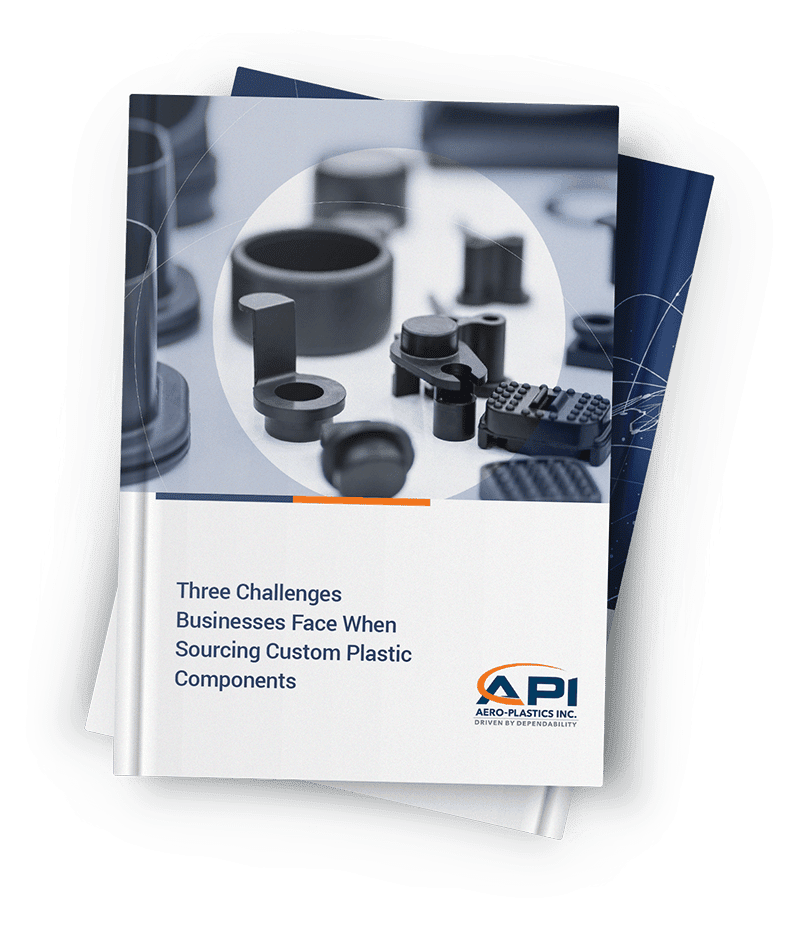Quality Operational Controls & Technology
Quality operational controls are essential. We have ISO13485:2016 certification — a guarantee that we maintain the highest quality procedures in the manufacturing and delivery of your product — and follow best practice standards for design for manufacture (DFM) and failure mode and effect analysis (FMEA). Our comprehensive state-of-the-art documentation system ensures full lot traceability of each delivery.
What Materials are Used in Medical Machining and Injection Molding?
Because of their medical applications, materials used in devices and parts made by machining and injection molding must be strong, durable, and biocompatible — the latter meaning they must be resistant to corrosion and breakdown.
The plastics used in medical machining and injection molding must also have high molecular weight, and have chemical and heat-resistant properties.
Common materials include:
- PEEK: Plastic resin that is highly resistant to chemicals and wear; FDA approved for food contact and has a UL 94 V-0 flammability rating.
- Ultem: Resists environmental stress and cracking, provides excellent dimensional stability and strength.
- Carbon fiber-filled resins: Carbon fiber can be added to thermoplastic resin to increase its favorable properties, including durability. The resulting material has become a common replacement for metal parts in newer medical devices, because it’s nearly as strong as steel while weighing a fraction of the amount.
- Nylon: Synthetic thermoplastic polymer commonly used in injection molding applications. Qualities include high melting temperature, low friction, high tensile strength, and chemical resistance.
- Olefins: Polymer-blend materials that combine a thermoplastic, an elastomer or rubber, and a filler material. Generally they provide high stiffness, excellent dimensional stability, good flexibility, and excellent weather resistance (including UV).
- Styrenics: Lightweight thermoplastic resins that offer high dimensional stability and rigidity, good dielectric performance, and reliably constant mechanical properties. They’re water resistant and provide excellent thermal insulation.
- TPR: Short for thermoplastic rubber, TPR is a class of copolymer materials that combine properties of plastic and rubber: high flexural fatigue, weathering, and chemical resistance, plus good tear and abrasion resistance.
- Thermoplastic elastomers: Type of resins that provide superior consistency and energy efficiency. They require little to no compounding, stabilizers, cure systems, or reinforcing agents.
- Liquid crystal polymers: Maintain high mechanical strength at high temperatures, and favored for their extreme chemical resistance and flame retardance. Highly resistant to stress cracking, common forms are Kevlar, Vectra, and Zenite.
- Polycarbonate: Naturally transparent, highly heat resistant and tensile, and flexible while strong. Often used for producing flexible devices like medical tubing.
Considerations for Medical Injection Molding and Machining Plastic Materials
Considerations for selecting the right medical grade plastic material for your application include:
- Strength: Plastic resins provide varying levels of strength, sometimes to the sacrifice of other qualities — it’s important to select the right qualities for your project’s application.
- FDA requirements: Medical devices that are being implanted have different requirements than those for external uses.
- Heat & chemical resistance: These traits are particularly important to consider if your product must be able to withstand repeated sterilization via autoclave, gamma ray, or chemical methods.
- Operating environment: Operating conditions determine requirements for strength, various resistances, and radiation exposure, among other factors.
Value Added Services in Medical Device Machining
Aero-Plastics is your turn-key supplier of plastic parts and assemblies, providing many value-added services and integration capabilities to simplify your supply chain, including:
- Ultrasonic welding
- Inserting
- Assembly
- Finishing
- Printing
- Other turnkey processes
Benefits of Medical Device Machining and Injection Molding
Medical device machining and injection molding are vitally important manufacturing processes for the medical industry, due to their ability to manufacture precise, consistent devices and components of the smallest sizes.
The resulting products offer benefits including:
- Better ergonomics; parts and devices are able to be flexible
- Improved functionality; materials reduce the risk of infection
- Lower weight; better comfort for patients
- Less expensive; contributing to the overall reduction of healthcare costs
- Fewer sterilization concerns; can withstand the process better than other materials
Overall, medical device machining and injection molding are processes that offer a cost-efficient solution for high volume production runs and applications that require consistency and tight tolerances.






